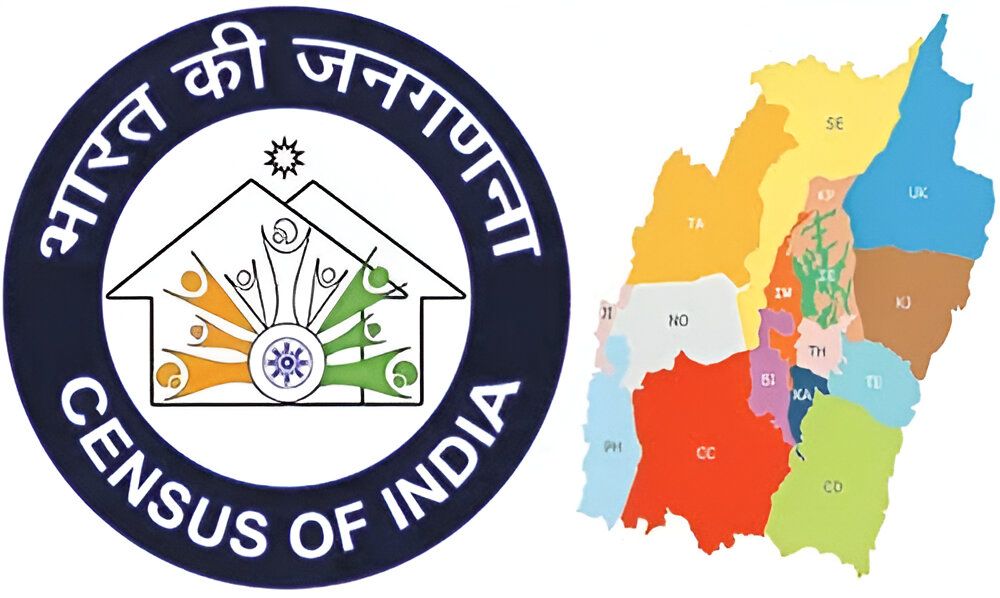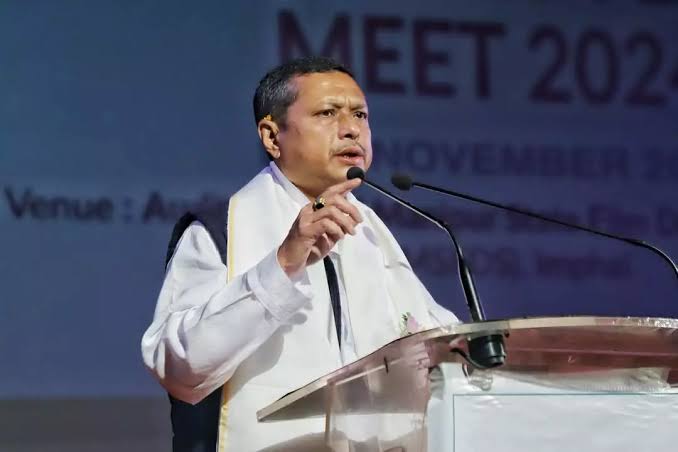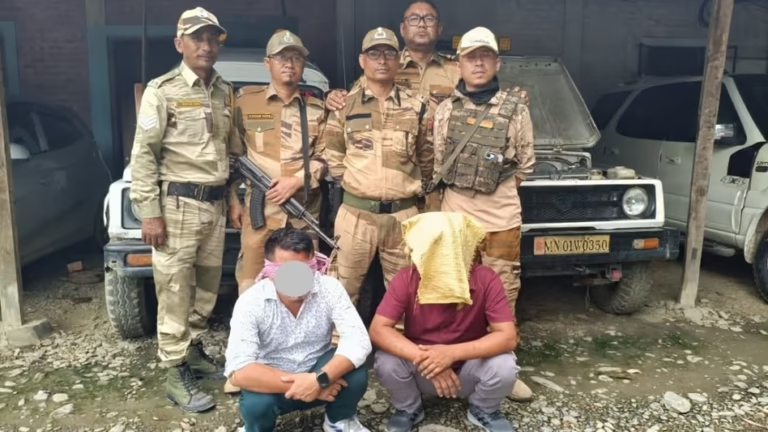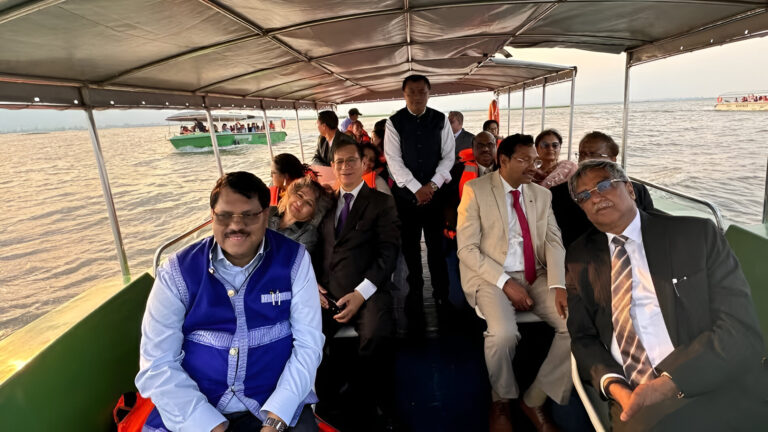Manipur BJP MLAs Advocate for 2001 Census Review and NRC Implementation Prior to Delimitation
In a recent development, Bharatiya Janata Party (BJP) legislators in Manipur have called for a reassessment of the 2001 Census data and the implementation of the National Register of Citizens (NRC) before proceeding with the state’s delimitation exercise. This demand aligns with concerns raised by multiple political entities and civil society organizations regarding the accuracy of demographic data and the potential impact on indigenous populations.
Understanding the Demand: Manipur BJP MLAs Call for Census Review and NRC Implementation Before Delimitation
In the heart of Northeast India, Manipur stands at a pivotal crossroads concerning its political and demographic future. Recently, the state’s Bharatiya Janata Party (BJP) legislators have voiced a significant demand: a thorough review of the 2001 Census and the implementation of the National Register of Citizens (NRC) before initiating any delimitation exercises. This move underscores the complexities and sensitivities surrounding Manipur’s demographic data and its implications for political representation.
Delimitation: A Brief Overview
Before diving into the specifics of Manipur’s situation, let’s unpack what delimitation entails. Delimitation is the act of redrawing the boundaries of electoral constituencies to ensure equitable representation based on the latest population data. Ideally, this process ensures that each representative speaks for a roughly equal number of constituents, maintaining the principle of “one person, one vote.”
The Crux of the Matter: Why the 2001 Census?
The 2001 Census serves as a foundational demographic record for India. However, in Manipur, this particular census has been a subject of contention. Concerns have been raised about alleged inaccuracies and anomalies in the data, especially regarding population figures in certain districts. Such discrepancies, if unaddressed, could lead to misrepresentation in the legislative assembly, skewing the democratic process.
BJP MLAs’ Standpoint
On April 2, 2025, BJP legislators in Manipur convened to deliberate on the Supreme Court’s directive to the central government to carry out the delimitation exercise within three months. Post-meeting, senior BJP MLA Konthoujam Govindas emphasized the need for a comprehensive review of the 2001 Census data. He highlighted that the integrity of the delimitation process hinges on accurate and reliable demographic data. India Today NE
The Role of the National Register of Citizens (NRC)
Parallel to the census review, there’s a growing clamor for the implementation of the NRC in Manipur. The NRC is a register designed to document genuine citizens of India, aiming to identify and address issues related to illegal immigration. In Manipur, concerns about unchecked immigration altering the state’s demographic fabric have been longstanding. Implementing the NRC is seen by many as a step toward preserving the rights and identity of indigenous communities.The Hindu+2The Economic Times+2India Today NE+2
Echoes from Other Political Entities
The BJP isn’t alone in its apprehensions. On March 25, 2025, representatives from 13 political parties, including the National People’s Party (NPP), Janata Dal (United), and the Communist Party of India (Marxist), among others, resolved to urge the Centre to defer the delimitation exercise until the “errors” in the 2001 Census are rectified. This collective stance underscores the widespread concern about potential misrepresentation stemming from flawed demographic data. India Today NE
Civil Society’s Perspective
Beyond the political arena, civil society organizations have also entered the fray. The Coordinating Committee on Manipur Integrity (COCOMI), a prominent Meitei civil society group, has voiced opposition to any delimitation exercise preceding the implementation of the NRC. COCOMI’s spokesperson, Khuraijam Athouba, emphasized that without identifying and addressing the presence of illegal immigrants, delimitation could be detrimental to indigenous populations. The Economic Times
Historical Context: Manipur’s Demographic Dynamics
To fully grasp the gravity of these demands, it’s essential to understand Manipur’s demographic landscape. The state is a mosaic of various ethnic communities, including Meiteis, Nagas, Kukis, and others. Over the decades, concerns about demographic shifts due to migration have fueled tensions and calls for protective measures. The abnormal population growth rates in certain hill districts between 1971 and 2011 have particularly raised eyebrows, pointing towards possible large-scale immigration. India Today NE+1India Today NE+1The Hindu
Government’s Response and the Path Forward
Manipur’s Chief Minister, N. Biren Singh, has acknowledged these concerns. In March 2024, he announced that the state government would recommend the implementation of the NRC to the Centre, emphasizing that such a move is beyond the state’s purview and requires central intervention. India Today NE+2The Hindu+2India Today NE+2India Today NE
Balancing Act: Representation vs. Rights
At its core, the debate encapsulates a delicate balancing act between ensuring fair political representation and safeguarding the rights of indigenous communities. While delimitation aims to uphold democratic principles by adjusting representation based on population changes, proceeding without addressing underlying demographic concerns could exacerbate existing tensions.
Conclusion
Manipur stands at a critical juncture. The calls for a review of the 2001 Census and the implementation of the NRC before delimitation reflect deep-seated concerns about identity, representation, and the future of the state’s diverse communities. As the Centre deliberates on these demands, it’s imperative to approach the situation with sensitivity, ensuring that democratic processes do not inadvertently marginalize the very populations they aim to represent.
FAQs
- Why is the 2001 Census still relevant for Manipur?
The 2001 Census data continues to serve as a critical reference for electoral delimitation. However, many argue that demographic changes over the past decades necessitate an update to reflect current realities and ensure fair representation. - What is the NRC and why is it controversial in Manipur?
The National Register of Citizens (NRC) is designed to verify the citizenship of residents. Its implementation in Manipur has been controversial due to concerns about data accuracy, potential disenfranchisement of genuine citizens, and its impact on electoral boundaries. - How could reviewing the census data benefit local governance?
An updated census can lead to more equitable electoral representation, better resource allocation, and more targeted public policies, ultimately fostering an environment of transparent and effective governance. - What are the technical challenges involved in reviewing old census data?
The challenges include data collection and verification, resource allocation, ensuring interdepartmental coordination, and integrating modern technology with outdated systems to produce accurate and reliable data. - How might international practices influence the review process in Manipur?
By learning from countries that regularly update their demographic data and use advanced technologies for data collection and analysis, Manipur can adopt best practices that ensure a smoother, more accurate review process and fairer electoral outcomes.






